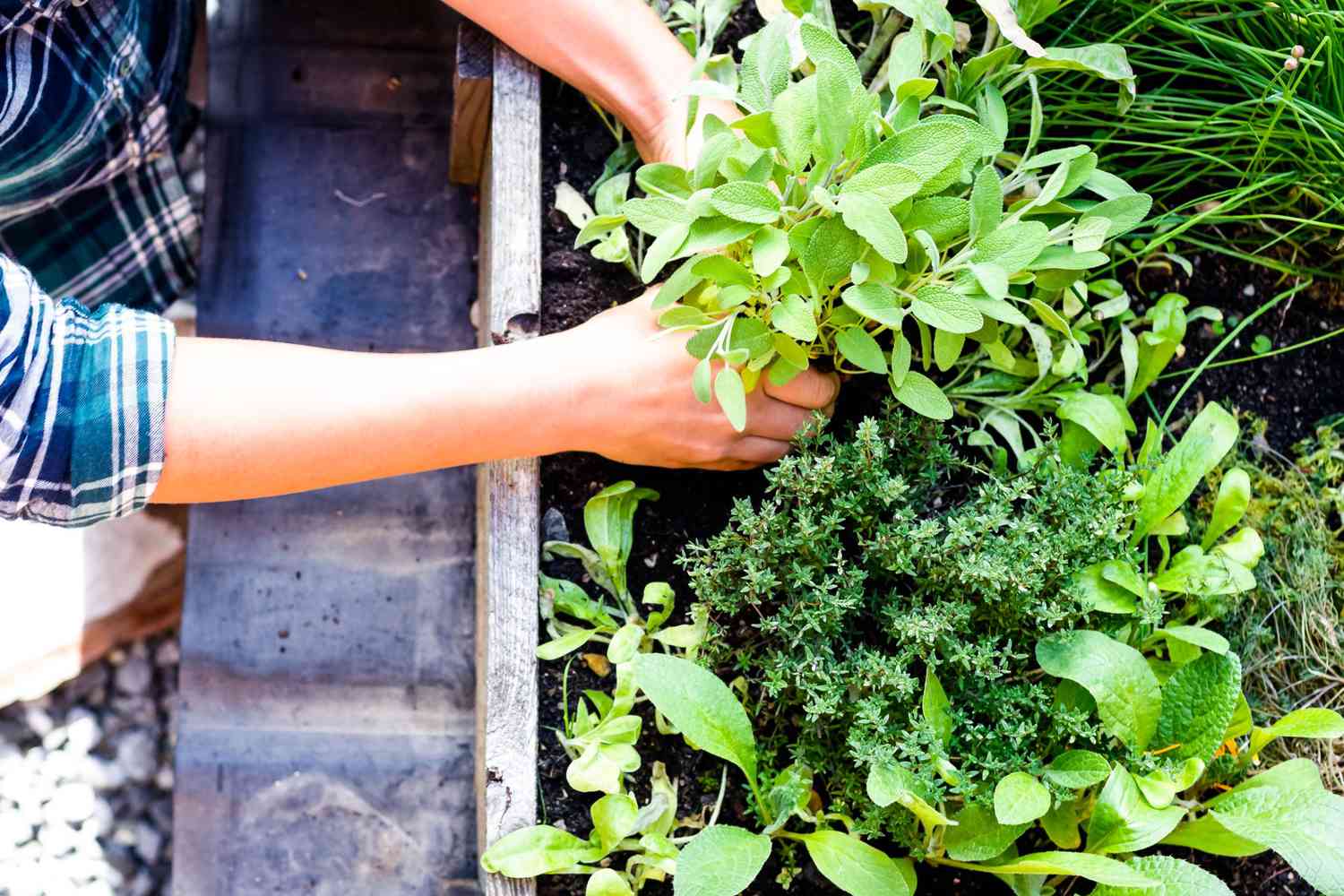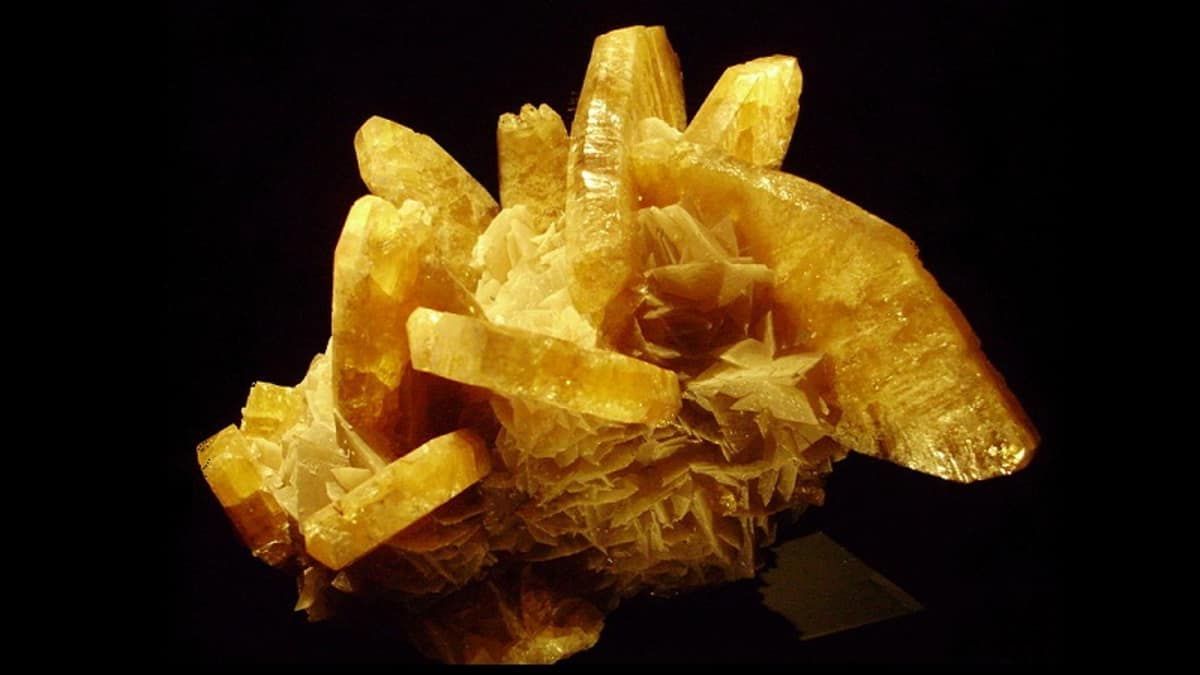
Are you looking to add a touch of nature to your lifestyle? Herb gardening is the perfect way to bring the beauty and aroma of fresh herbs right to your doorstep. Not only is herb gardening a satisfying and rewarding hobby, but it also offers numerous health benefits and a unique way to enhance your culinary endeavors.
In this article, we will explore 20 surprising facts about herb gardening that will inspire you to start your own herb garden. From learning about the various types of herbs and their uses to discovering the secrets of successful cultivation, this guide will equip you with the knowledge and expertise you need to embark on your herb gardening journey.
Whether you have a spacious backyard or a small balcony, herb gardening can be enjoyed by anyone. So, grab your gardening gloves, get your hands dirty, and let’s uncover the enchanting world of herb gardening together!
Key Takeaways:
- Herb gardening is a versatile and rewarding hobby that can be enjoyed in small spaces, year-round. It promotes sustainability, health, and creativity, making it a perfect activity for anyone looking to connect with nature.
- Growing herbs can be a fun family activity that fosters a sense of community and ignites creativity. It’s a stress-relieving, sustainable practice with surprising health benefits and uses, making it a delightful and enriching experience for all.
Herb gardening has been practiced for centuries.
Since ancient times, civilizations around the world have been harnessing the power of herbs for their culinary, medicinal, and aromatic properties. The tradition continues to thrive in modern times.
You don’t need a large garden to grow herbs.
Herbs are versatile and can be grown in small spaces like balconies, windowsills, or even indoors. All you need is a planter, some soil, and ample sunlight.
Herbs can be grown year-round.
Unlike many other plants, herbs can be grown throughout the year, depending on the variety. Some herbs, such as basil and mint, thrive in warm weather, while others, like rosemary and thyme, can withstand cooler temperatures.
Many herbs are packed with health benefits.
Herbs like turmeric, ginger, and garlic have long been recognized for their medicinal properties. Incorporating them into your diet can boost your immune system, aid digestion, and improve overall well-being.
Herb gardening can be a stress-reliever.
Spending time surrounded by nature and tending to your herbs can have a calming effect on the mind and body. It’s a therapeutic activity that allows you to unwind and connect with nature.
Some herbs can repel pests naturally.
Basil, lavender, and rosemary are not only great for cooking but also act as natural repellents for mosquitoes, flies, and other pesky insects. They add beauty and functionality to your garden.
Freshly harvested herbs taste superior.
There’s nothing quite like the flavor of freshly picked herbs. They have a vibrant taste that enhances your culinary creations and elevates them to a whole new level.
You can preserve herbs for future use.
If you have an abundant harvest, don’t worry about your herbs going to waste. You can dry them, freeze them, or even create herb-infused oils and vinegars to enjoy their flavors all year round.
Some herbs can attract beneficial insects.
Planting herbs like dill, fennel, and chamomile can attract pollinators like bees and butterflies to your garden, aiding in the pollination of other plants and promoting a healthier ecosystem.
Herb gardening promotes sustainable living.
By growing your own herbs, you reduce your carbon footprint and decrease your reliance on store-bought herbs that often come packaged with plastic. It’s a small step towards a greener and more sustainable future.
Herbs have a long history in traditional medicine.
Ancient healing systems like Ayurveda and Traditional Chinese Medicine have been utilizing the therapeutic properties of herbs for centuries. Many modern medications have their roots in traditional herb-based remedies.
Herbal teas are both soothing and beneficial.
Infusing herbs like chamomile, peppermint, and lemon balm in hot water creates aromatic and soothing teas that can help relieve stress, promote sleep, and improve digestion.
You can create your own herb blends.
Experimenting with different combinations of herbs allows you to create unique and flavorful blends, whether it’s for cooking, teas, or homemade skincare products.
Some herbs have natural dyeing properties.
Herbs like turmeric, beetroot, and elderberry can be used to naturally dye fabrics and yarn, replacing harmful synthetic dyes with natural alternatives.
Herbs are resilient and easy to grow.
Even if you’re a beginner gardener, herbs are forgiving plants that can withstand adverse conditions and still thrive. They are a great confidence booster for those new to gardening.
Herb gardening can foster a sense of community.
Sharing your bountiful herb harvest with friends, family, and neighbors is a wonderful way to connect and build community relationships. It’s a gift that keeps on giving.
Some herbs have symbolic meanings.
In many cultures, specific herbs carry symbolic meanings. For example, lavender symbolizes purity and peace, while rosemary is associated with remembrance and loyalty.
Certain herbs can enhance the flavor of other plants.
Companion planting is a technique where certain herbs, like basil and dill, are grown alongside vegetables to improve their taste and deter pests.
Herb gardening can be a family activity.
Involve your children in herb gardening to teach them about nature, responsibility, and the joy of growing their own food. It’s a bonding experience that creates lasting memories.
Herb gardening can ignite your creativity.
From experimenting with new recipes to creating homemade remedies and crafts, herb gardening sparks creativity and encourages you to explore different ways of using these versatile plants.
Now that you’ve uncovered these 20 surprising facts about herb gardening, it’s time to put your newfound knowledge into practice. Whether you’re an experienced gardener or just starting out, herb gardening is a rewarding and enriching hobby that brings joy, flavor, and beauty to your life.
Conclusion
Herb gardening is not only a popular hobby but also a rewarding and sustainable way to enhance your lifestyle. By incorporating fresh herbs into your daily routine, you can add flavor to your meals, improve health, and create a relaxing and aromatic atmosphere in your home or garden.
Remember to choose the right herbs for your climate and growing conditions, and provide them with proper care and maintenance. With a little bit of effort and knowledge, you can enjoy the benefits of herb gardening and take pride in growing your own herbs.
FAQs
Q: Can I grow herbs indoors?
A: Absolutely! Many herbs, such as basil, parsley, and mint, can be grown successfully indoors. Just make sure they receive sufficient sunlight, proper watering, and adequate airflow. Consider using grow lights or placing them near a sunny window to provide the necessary light.
Q: Do herbs require a lot of space to grow?
A: Not necessarily. Herbs can be grown in containers, raised beds, or even small patches of soil. Compact varieties like thyme and rosemary can thrive in limited spaces, making them ideal for balconies or small gardens. Consider using vertical gardening techniques to maximize your space.
Q: How often should I water my herbs?
A: It depends on the type of herb and the environmental conditions. Most herbs prefer well-drained soil, so it’s important not to overwater them. Check the moisture level by sticking your finger in the soil. If it feels dry to the touch, it’s time to water. Avoid excessive watering, as it can lead to root rot.
Q: Are all herbs perennial?
A: No, not all herbs are perennial. Some herbs, like basil and cilantro, are annuals and complete their life cycle in one season. However, there are many perennial herbs, such as sage, thyme, and rosemary, that can survive and grow for several years with proper care.
Q: Can I use herbs for medicinal purposes?
A: Yes, herbs have been used for medicinal purposes for centuries. However, it’s important to consult with a healthcare professional or herbalist before using herbs for medicinal purposes. They can guide you on the appropriate usage, dosage, and potential interactions with medications.
Q: How do I preserve herbs for future use?
A: There are several methods to preserve herbs, including drying, freezing, and infusing them into oils or vinegars. Drying herbs is a popular method where you can hang them upside down in a well-ventilated area. Freezing involves chopping the herbs and storing them in ice cube trays with a bit of water or oil. Infusing herbs into oils or vinegars requires steeping them in the liquid for a certain period of time. These methods help retain the flavor and aroma of the herbs for later use.
Herb gardening offers a wealth of benefits, from enhancing your cooking to promoting relaxation and well-being. Why not take your passion for herbs to the next level by exploring the convenience and versatility of indoor herb garden kits? These cleverly designed sets provide everything you need to cultivate a thriving herb oasis right in your own home, ensuring a steady supply of fresh, flavorful ingredients at your fingertips. Embrace the joy of nurturing your own herb garden and discover how easy it is to bring a touch of nature into your daily life.
Was this page helpful?
Our commitment to delivering trustworthy and engaging content is at the heart of what we do. Each fact on our site is contributed by real users like you, bringing a wealth of diverse insights and information. To ensure the highest standards of accuracy and reliability, our dedicated editors meticulously review each submission. This process guarantees that the facts we share are not only fascinating but also credible. Trust in our commitment to quality and authenticity as you explore and learn with us.


